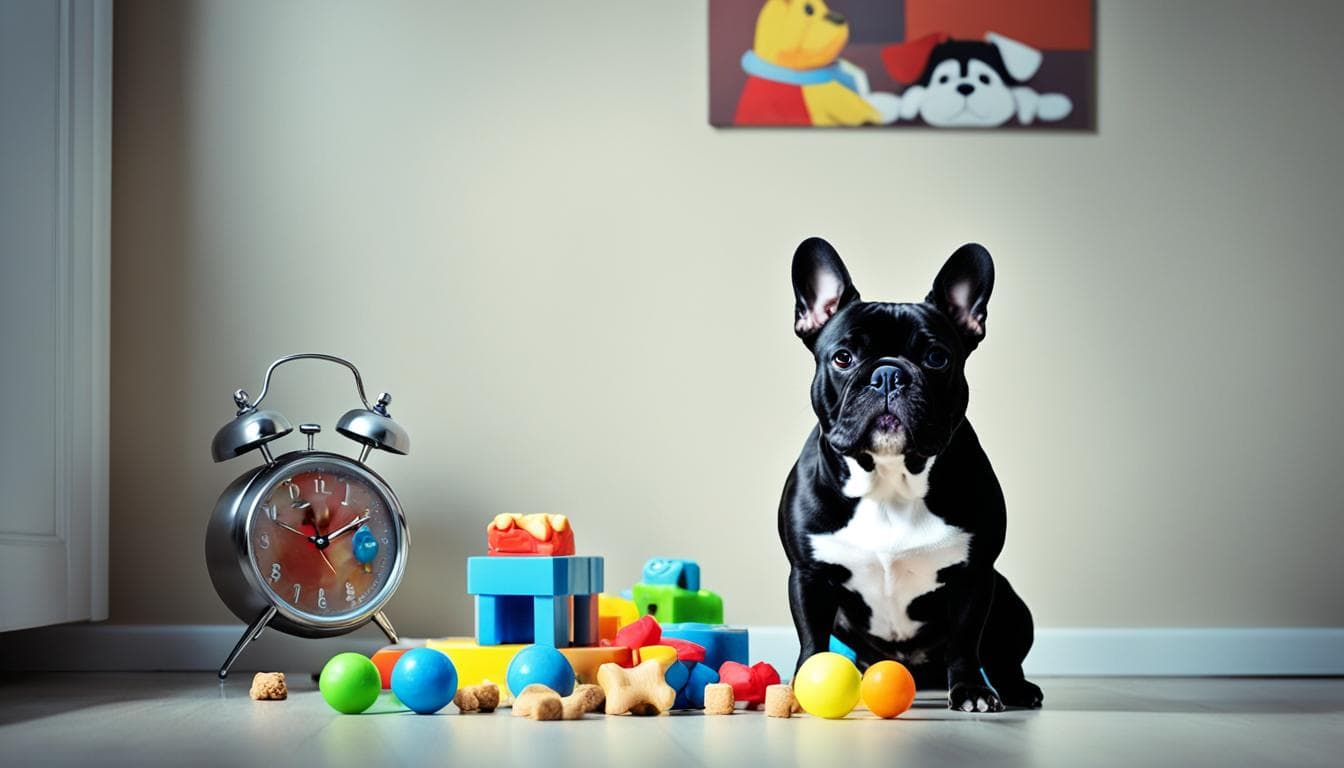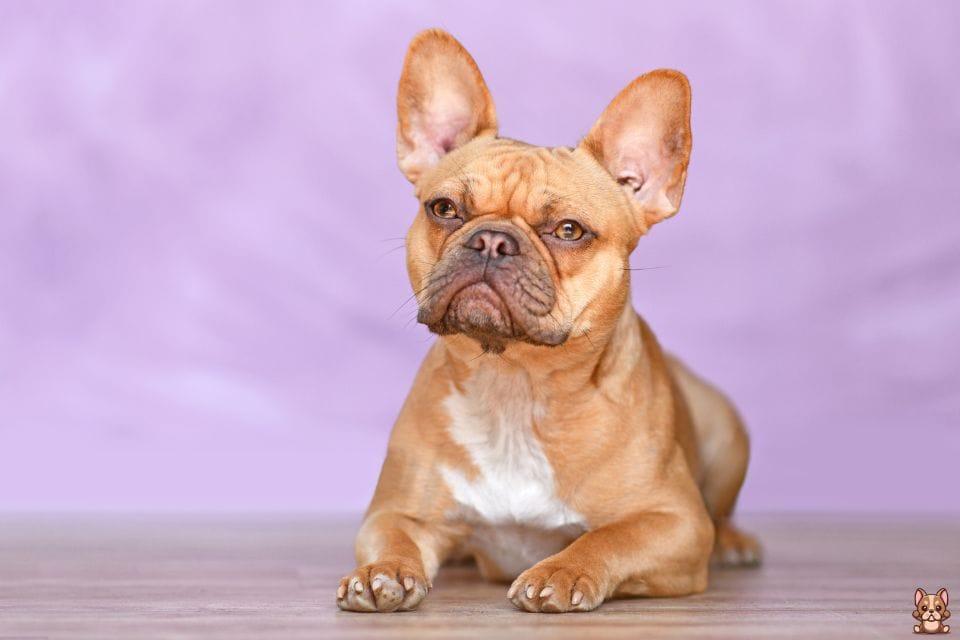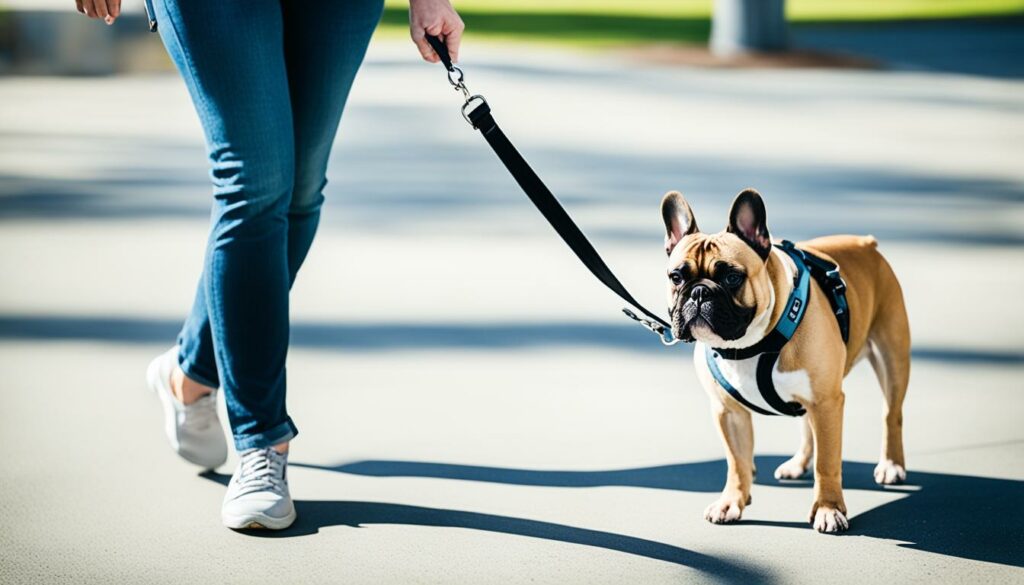Separation anxiety is a common issue faced by many French Bulldog owners. These adorable, affectionate companions often struggle when left alone, leading to distress and unwanted behaviors. As a responsible owner of a French Bulldog, it’s important to recognize the signs of separation anxiety and use effective strategies to help your dog deal with it.
This article will provide practical tips to help you manage separation anxiety in French Bulldogs. These tips will ensure a happier and more relaxed life for both you and your beloved pet.
Understanding Separation Anxiety

French Bulldogs can show separation anxiety in different ways, like barking a lot, whining, chewing things they shouldn’t, going to the bathroom inside, and trying to run away. These behaviors often occur when a Frenchie is left alone or separated from their primary caregiver. Recognizing the signs early on is key to addressing the issue effectively.
Common Signs of Separation Anxiety in French Bulldogs
- Excessive vocalization (barking, whining, howling)
- Destructive behavior (chewing, digging, scratching)
- Indoor elimination (urinating or defecating)
- Pacing or restlessness
- Attempts to escape confinement
- Excessive drooling or panting
- Loss of appetite or refusal to eat when alone
If your French Bulldog shows any of these behaviors, it’s important to take action and create a plan to help them feel less anxious.
Creating a Positive Environment
One of the most effective ways to manage separation anxiety in French Bulldogs is by creating a positive, comforting environment. To keep your French Bulldog safe and comfortable when they are alone, provide them with a designated area, fun toys, and calming items.
Establishing a Safe Space
Designate a specific area in your home where your French Bulldog feels comfortable and secure. This could be a crate, a playpen, or a dedicated room. Ensure that the space is cozy, well-ventilated, and equipped with a comfortable bed, blanket, and favorite toys.
Providing Engaging Toys and Activities
Keep your Frenchie mentally stimulated and occupied during alone time by offering a variety of engaging toys and activities. Puzzle feeders, chew toys, and interactive playthings can help redirect their attention and alleviate boredom-induced anxiety.
| Toy Type | Benefits |
|---|---|
| Puzzle Feeders | Encourages problem-solving and prolongs feeding time |
| Chew Toys | Satisfies natural chewing instincts and relieves stress |
| Interactive Toys | Stimulates mental engagement and physical activity |
Using Calming Aids
To promote relaxation, consider introducing calming aids into your French Bulldog’s environment. Some effective options include:
- Pheromone diffusers or collars that mimic the scent of a nursing mother dog
- Calming music or white noise to mask external stimuli
- Anxiety wraps or vests that provide gentle pressure and a sense of security
Gradual Desensitization and Counterconditioning
To manage separation anxiety in your French Bulldog, it’s important to gradually help them get used to being alone and change their emotional response. This process involves slowly increasing the duration of alone time while associating positive experiences with your absence.
Implementing Gradual Separation
Begin by leaving your French Bulldog alone for brief periods, like a few seconds to a minute, and then slowly extend the time. This allows them to build confidence and tolerance for being alone without experiencing intense anxiety.
Positive Reinforcement Training
Pair your departures with positive reinforcement, such as high-value treats or favorite toys. Give your French Bulldog a special treat or toy only when you leave, so they see your absence as a positive thing. Upon your return, remain calm and avoid excessive greeting to prevent reinforcing anxious behaviors.
Maintaining a Consistent Routine

Establishing and maintaining a consistent daily routine is essential for French Bulldogs with separation anxiety. Predictability helps reduce stress and promotes a sense of security.
Scheduled Feeding, Exercise, and Playtime
Feed your Frenchie at regular times each day and ensure they receive adequate exercise and playtime. A tired, mentally stimulated dog is more likely to rest calmly when left alone. Aim for at least 30 minutes of daily exercise, tailored to your Frenchie’s individual needs and abilities.
Consistent Departure and Arrival Cues
Use consistent cues when leaving and returning home to help your French Bulldog understand that your absence is temporary. For example, use a specific phrase like “I’ll be back” when departing and a calm greeting upon return. Avoid making a big fuss or engaging in excessive excitement, as this can heighten anxiety.
Seeking Professional Help

If your French Bulldog’s separation anxiety persists or worsens despite your efforts, it’s essential to seek professional help. A qualified dog trainer or behaviorist can assess your Frenchie’s specific needs and develop a tailored treatment plan.
Working with a Certified Dog Trainer
A certified dog trainer experienced in treating separation anxiety can provide valuable guidance and support. They can help you refine your training techniques, identify triggers, and develop a customized desensitization and counterconditioning program.
Consulting with a Veterinary Behaviorist
In severe cases of separation anxiety, consulting with a veterinary behaviorist may be necessary. These experts can evaluate your French Bulldog’s health, identify any underlying medical problems, and recommend suitable medications or treatments to support your training.
Frequently Asked Questions
1. How long does it take to treat separation anxiety in French Bulldogs?
The duration of treatment varies depending on the severity of the anxiety and the individual dog’s response to interventions. Mild cases may show improvement within a few weeks, while more severe cases can take several months or longer. Consistency and patience are key to success.
2. Can I use a crate to manage my French Bulldog’s separation anxiety?
Crate training can be helpful for some French Bulldogs, providing a secure and comforting space. However, it’s crucial to introduce the crate gradually and ensure it’s never used as punishment. If your Frenchie shows signs of distress or panic in the crate, alternative confinement methods may be more appropriate.
3. Are there any medications that can help with separation anxiety?
In some cases, veterinary-prescribed medications can be used in conjunction with behavior modification to manage separation anxiety. Common options include anti-anxiety medications, such as fluoxetine or clomipramine, and situational medications like trazodone. Always consult with your veterinarian to determine if medication is appropriate for your French Bulldog.
Conclusion
To manage separation anxiety in French Bulldogs, you should create a positive environment, gradually desensitize and countercondition them, maintain a consistent routine, and seek professional help when necessary. To help your French Bulldog feel confident and cope with anxiety when alone, it’s important to understand their unique needs and work patiently with them.
Remember, every French Bulldog is unique, and progress may vary. Celebrate small victories along the way and remain committed to your Frenchie’s well-being. You can manage separation anxiety and build a stronger bond with your pet by showing love, being patient, and using the right strategies.
For more tips on caring for, training, and keeping your French Bulldog healthy, visit Frenchy Fab, your go-to resource for everything about French Bulldogs. Together, we can ensure our Frenchies live their best lives, free from the distress of separation anxiety.
Hi, I’m Alex! At FrenchyFab.com, I share my expertise and love for French Bulldogs. Dive in for top-notch grooming, nutrition, and health care tips to keep your Frenchie thriving.



